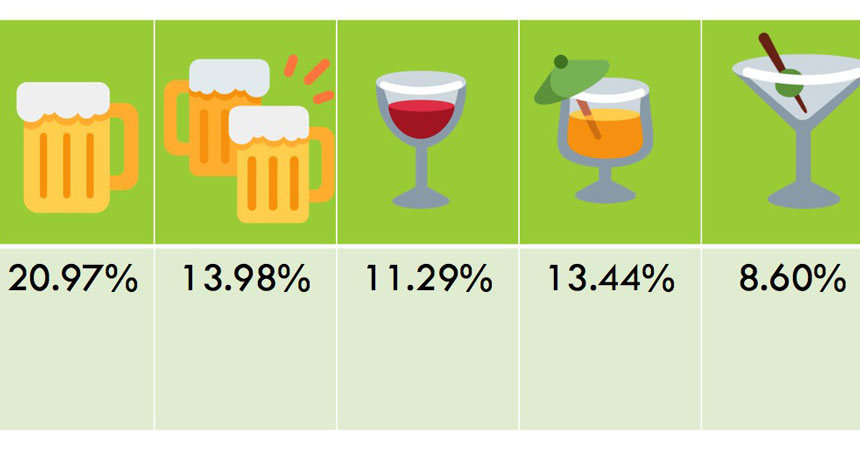Twitter posts offer insight into young adult drinking

Young adults’ social media chatter may reveal a lot about drinking behavior and intentions, say two UNTHSC public health researchers.
A new study published in Drug and Alcohol Dependence by Dr. Dana M. Litt, Dr. Melissa A. Lewis and colleagues, found a significant link between alcohol-related tweets, willingness to drink, alcohol use and negative consequences.
“This has important implications for parents of teens and younger adults, especially, who may want to set up ground rules on who their kids can follow, or perhaps follow them too,” Dr. Lewis said.
The UNTHSC researchers, led by Dr. Lewis, are currently conducting a five-year, $2.4 million study examining an online intervention to reduce alcohol use and related risky behaviors among young adults, funded by the National Institutes of Health, National Institute on Alcohol Abuse and Alcoholism.
The researchers examined a random, national sample of 5,000 Twitter posts from young adult drinkers ages 18-20.
“The majority of social media research in this area has focused on Facebook,” Dr. Litt said. “Few studies to date have looked specifically at Twitter, and of those, most have just looked at trends of alcohol-related Twitter chatter and have not linked them directly to self-reported behavior. Thus, the relationship between Twitter posts and users’ actual behavior were not really known.”
The research team used custom computer programming to search users’ Twitter content for explicit alcohol-identifying words and slang as well, such as drunk, drinking, hungover, wasted, booze and others. Additional hands-on coding by researchers helped eliminate non-applicable Tweets, like “I can’t stop drinking coffee” or “I dare you to drink a whole gallon of milk.”
Over half of those studied had posted a tweet with the word “drunk,” and over one third had tweeted a message using the term “wasted.” More than a quarter of users surveyed had posted at least one tweet with an alcohol-related emoji.
While demographic variables like gender, age and ethnicity were not identified as predictors of willingness to drink, problem drinking or alcohol-related negative consequences, the research did find that posting a higher proportion of alcohol-related tweets was a positive indicator of all three alcohol-related outcomes.
Understanding the connections between Twitter behavior and alcohol-related beliefs and actions, the researchers concluded, can be a key step in identifying those who may be most at risk and, in turn, developing public health education and interventions.
“Social media has created a unique window into people’s thoughts, and our research indicates that there is certainly an association between what you’re posting on Twitter, what you’re thinking about doing and what you end up doing in reality,” Dr. Litt said. “Knowing that alcohol-related Twitter activity seems to reflect one’s actual behavior is important knowledge for researchers, public-health practitioners and parents alike.”





Social media